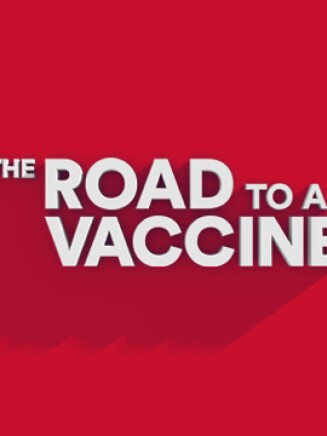1. What does COVID-19 stand for?
It’s a term for Coronavirus Disease 2019, the year it was first identified.
According to the National Institute of Allergy and Infectious Diseases, coronaviruses are a family of viruses that typically impact the respiratory tract and are common in people and many different species of animals.
A new type of coronavirus, SARS-CoV-2, has been found to cause what we now call COVID-19. The first case of COVID-19 was reported in December 2019.
2. What other viruses belong to the coronavirus family?
MERS and SARS
In addition to this new, or novel, coronavirus, there are at least six other coronaviruses that we currently know of, according to the Centers for Disease Control and Prevention (CDC). Four of them are extremely common and generally cause only mild symptoms, like the ones you might experience if you had a cold.
Before the current pandemic, there were two known types of coronavirus that could prove more harmful, and potentially even fatal: MERS-CoV (the coronavirus that causes Middle East Respiratory Syndrome, or MERS) and SARS-CoV (the coronavirus that causes severe acute respiratory syndrome, or SARS, pictured at right).
SARS-CoV-2 is the third type of this kind to be discovered.
3. True or False: A vaccine stimulates your immune system to produce antibodies, like it would if you were exposed to the virus.
True
Vaccines contain the same germs that cause disease, but in a weakened or inactivated form, according to the CDC. The vaccine stimulates your immune system so that after getting vaccinated you develop immunity to that disease, without having to get the disease first.
4. There are currently vaccines for the following coronaviruses:
None of the above
At this time, there are no approved vaccines for SARS or MERS.
5. How many vaccine candidates for COVID-19 have been proposed?
120+
According to the World Health Organization (WHO), more than 120 COVID-19 vaccines have been proposed around the world.
6. True or false: The virus is mutating rapidly.
False
The novel coronavirus is periodically changing, or mutating, in form. It doesn’t, however, seem to be mutating particularly rapidly. By contrast, according to the CDC, the flu is constantly changing. This is why flu vaccines must be updated each year.
7. How does weather seem to affect the novel coronavirus?
It is not yet known.
According to the CDC, it is not yet known whether temperature and weather have any effect on the spread and behavior of COVID-19.
8. Currently, which group has had more severe effects of COVID-19?
Men
At this time, studies have shown that men tend to be more seriously impacted by the novel coronavirus.
9. True or false: COVID-19 has currently been detected on all seven continents.
False
According to the CDC, COVID-19 has been detected in Africa, the Americas, Europe, Asia and Australia—but not in Antarctica.
As understanding of COVID-19 continues to evolve, the information here may become outdated. For the very latest news in your community, visit the Centers for Disease Control and Prevention or the World Health Organization. If you think you have COVID-19 symptoms or that you may have been exposed to the disease, contact your local healthcare provider.





